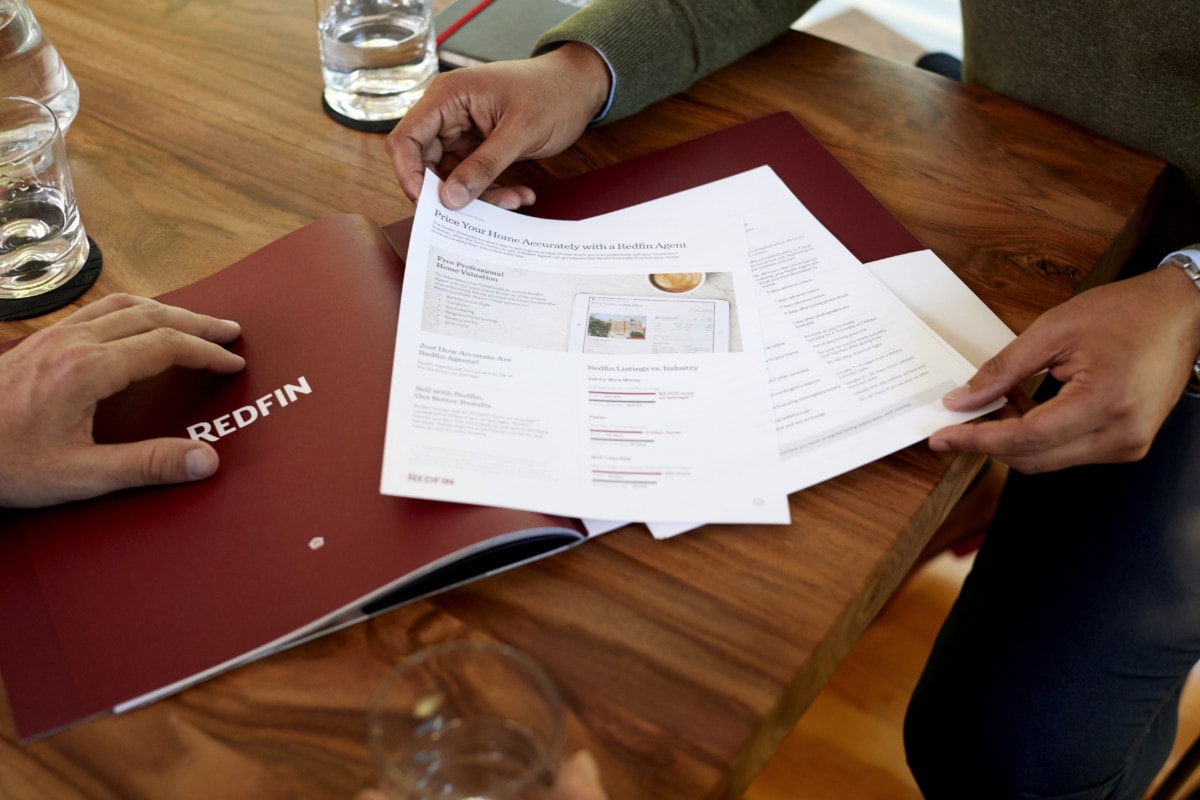So, the home seller has accepted your offer, and you’re ecstatic (and possibly a bit tired), but you’re approaching the finish line. All you want to do is move in, but first, you have a lot to schedule and arrange, and you’re wondering just how long it will take to close on your new home. In this guide, you will easily break down an 11-step house closing timeline to get you closer to owning your new home.
During the next few weeks, you’ll be engaging in frequent communication with your lender as well as making sure you’re getting a good deal on insurance, performing final diligence on the house, and preparing for closing day. To get you started, here are the steps that take place between the day your offer is accepted and the day you get the keys.

1. The closing process begins: Plan ahead for the big picture
A house closing process typically takes 30-60 days, with several steps that need to be taken in order for a swift and smooth closing process. Many of the steps will occur at the same time, so make a plan of keeping track of where you’re at with each requirement for closing. This way you’ll be able to move onto the next step quickly or check off that requirement and be that much closer to closing on your new home.
Consider online closings
Also, note that there are a growing number of digital-first lenders and title companies that may enable you to complete your entire closing process remotely, often with shorter timelines than the ones described below.
Get pre-approved and secure your dream home
Work with a lender to find the right loan for the home you love.
2. Submit documents and answer requests from the lender
Get pre-approved and secure your dream home
Average time: Ongoing throughout the process
Your mortgage lender will draw up paperwork that’s specific to the house and loan amount. Practically speaking, you’re committed to your lender from this point forward, since there won’t be time to restart the mortgage process with a new lender and still meet the closing date shown in your purchase agreement.
As soon as the seller accepts your offer, ask the lender for a list of everything they’ll want from you before closing. They still may request more, but at least you’ll have an overall idea. Don’t plan on traveling or doing anything unusual in the month before closing—you’ll want to be available to respond quickly to any request from your lender.
By law, the lender must give you an estimate of your loan within three business days of your application or any material changes to the loan scenario. This includes finalizing the property you are purchasing. The estimate will tell you the full costs of your loan as well as your closing costs.
When you get your estimate, review it closely. This is also the time to decide on your rate lock options. Longer rate locks often carry an extra fee, but with closing times trending towards the longer side, that fee may be worth the peace of mind. Before you decide on what kind of rate lock will meet your needs, talk to your lender or agent about what closing times look like in your housing market.
Changes to your credit
Keep your credit and income situation stable. Your lender may perform another credit and income check right before you close on a house. Taking a new job—even with a higher salary—could trigger a longer loan underwriting process and delay closing. Making large purchases, opening or closing lines of credit, taking on credit card debt, or getting a personal or car loan could also delay the closing process. Until the closing papers are signed, you don’t want to do anything to trigger hard inquiries on your credit file.
3. Shop for title insurance and other closing services
Average time: 7-14 days
Lender’s title insurance protects your lender against problems with the title of your property. Your lender will typically require that you purchase this as part of the closing process.
Your lender or real estate agent will usually recommend their preferred escrow agents, or you can ask to use one that you’ve worked with before. Then, the escrow or closing agent will choose the title insurance carrier and purchase title insurance for you.
You can shop around and get competitive bids for both escrow services and title insurance, though the practicality and expected benefit of this may vary depending on the size of your loan and the availability of title insurers in your market.
Once you have selected a title insurance company, they’ll run a title search and send a report of any claims found against the property, also known as encumbrances. It’s not unusual for something such as utility company easements to be in these records, though only a major issue like an unpaid lien would be likely to delay your closing.
4. Schedule a home inspection and negotiate concessions for any issues
Average time: 7-14 days
Ideally, your purchase agreement included an inspection contingency. In a seller’s market, buyers may waive this to be more competitive, even if an inspection is in their best interests. If you do have this contingency in your contract, you can ask your agent to recommend an inspector they know and trust.
The home inspection will almost certainly show some issues, so it makes sense to schedule this early. Don’t wait until after the home appraisal to get this on the calendar—you want to give yourself plenty of time to negotiate any concessions and avoid closing delays. If the inspection shows defects in the house, you can ask the seller to reduce the sales price or possibly provide a credit at closing, if your lender allows this.
If you’re buying a new construction home in a planned community where the builder is still constructing new homes, it may be easiest to have the builder agree in writing to take care of the repairs themselves after closing. This should be reserved for situations where the repairs are largely cosmetic and don’t prevent you from moving into the house. Also, make sure the builder provides you with the Certificate of Occupancy or local equivalent before closing. Your lender will likely require this before they’ll fund the loan.

5. Get the appraisal report
Average time: 14-30 days
Your lender typically orders an appraisal shortly after they generate the revised loan estimate for the specific property you’re purchasing. In very active real estate markets, appraisers often have a long backlog, and how long the appraisal takes becomes the biggest timing factor in meeting the desired closing date.
If the appraisal comes back lower than expected, you’ll have to talk with your real estate agent and lender. In that case, your typical options are to get the seller to reduce the price, or come up with more money and pay the difference out of pocket. If you have an appraisal contingency in your contract, you can walk away if the appraisal comes in low.
Once the appraisal has been completed, your lender should send you a mortgage commitment letter, which indicates they will fund the loan for the property you’re buying. The letter may list additional conditions that must be met prior to closing, so be sure to add these to your to-do list.
6. Shop for homeowner’s insurance
Average time: 3-14 days
Getting homeowner’s insurance may be one of the easiest steps in the closing process, especially if you already have a relationship with an insurance company that writes homeowner policies.
Most lenders require buyers to have active homeowner’s insurance until the loan is paid off in full. Your lender will probably require you to provide proof of insurance before closing. Check with your lender to find out which coverage levels they require, and then shop around for quotes—or work with your existing insurance agent to tailor a policy to meet your needs.
7. Look out for revised loan estimates
Average time: Ongoing throughout the process
Expect to receive several updated loan estimates before closing, since lenders typically generate a new copy whenever more information about the final loan—such as the projected title insurance and homeowner’s insurance premiums—becomes known.
The lender will often perform another credit check before closing on a house. If anything has changed with your credit, this could delay things. There may also be lender-related delays that are outside your control, such as if the appraiser the bank chose didn’t deliver the appraisal report by the specified date. If that happens, the lender should be able to extend the rate lock at no charge. In other cases, you may have to pay a fee to extend it.
8. Take the final walkthrough
Average time: 3 days
Last-minute issues can pop up that may delay the closing process. This is a good time to walk through the house and check on the items you negotiated after the inspection. For example, if the seller agreed to repair a noisy air conditioner listed in the inspection report, did they fix it? If not, or there’s a new problem, the seller may give you money to put towards your closing costs instead of trying to complete the repair before closing.
Also, if the seller moved out after the inspection, but before your final walkthrough, did they damage anything on the way out? If the seller agreed to leave an appliance or piece of furniture, is it still there?
If the final walkthrough reveals a significant issue, have your agent discuss it with the seller’s agent. Ideally, you can receive a concession, rather than delaying closing.
More commonly, you’ll notice minor problems like nail holes behind where artwork had been placed, bathrooms or kitchens in need of a deep cleaning, etc. This is a good time to ask your agent for referrals to a few good contractors, so you can schedule someone to take care of these issues immediately after closing and before you move in.
9. Review documents before closing
Average time: 3 days
By law, the closing agent must send you a final loan disclosure at least three business days before you’re scheduled to sign your paperwork. Check in with your escrow agent to make sure they’re on track to send over every document you’ll need to sign.
These are some of the most important documents you’ll see at closing:
- Closing Disclosure: A standard five-page form that lists all of the final terms and costs of the mortgage loan you’re about to close on.
- Promissory Note: The document that contains the promise to repay the loan amount borrowed, and the terms for repayment.
- Mortgage or Deed of Trust: There are different versions of this document that vary by state and lender.
Questions to ask the escrow company before the closing:
- What documents will I need to bring, such as a government-issued photo ID?
- How much will I need to pay at closing, and how do they want the payment made?
- If I’m receiving a rebate at closing, how will that payment be made?

10. Close the deal and get the keys to your new home
Average time: Less than one day
When you sit down to sign all closing paperwork, there are several crucial things to check, even though you closely reviewed the documents beforehand:
- Are the loan type, interest rate, monthly payment, and other key terms what I expected? Do they all match?
- Is my personal information correct on all of the documents?
- Are there any fees that I don’t understand or that have changed significantly?
- What happens if I fall behind on my mortgage payments?
If there are any significant differences between the documents you reviewed before the closing day and the documents they give you on closing day, hold off on signing until you fully understand why there’s a difference. Don’t feel pressured to skip steps or go faster than you’re comfortable with.
Tips for closing on a house quickly
- Consider the digital closing process: The remote home closing process may be faster and more convenient for you than in-person.
- Prepare paperwork ahead of time: Have your documents on hand in advance for your lender to speed things along. Ensure you have copies of your tax returns and W-2 statements from the last two years. You will also need your two most recent pay stubs and bank statements. Gathering your documents may be your most time-consuming process; however, they are required verification documents you have to show your lender.
- Be honest with your Lender: If you’re worried that you’re in a situation that will harm your approval—you must disclose it to your lender. You may be committing loan fraud if you withhold information from your loan application. No matter what, your lender will discover the information you elect to withhold. Credit checks, occupancy tests, and employment checks are all within the mortgage approval process.
- Use pre-approvals: Reduce your time by a week arriving on the day of your offer with a pre-approval ready in your hand. If your loan is pre-approved, your lender will quickly move you from the “writing the contract” to the “underwriting the loan.”
11. Save and file your documents
Average time: Less than one hour
You’ll want to keep your original documents in a safe place, since you might need to provide them when you later sell the house, have to make an insurance claim, or are in another situation where you need to prove ownership. The most important original documents to keep in a safe place are the purchase agreement, deed, promissory note, and deed of trust or mortgage.
Ideally, the closing process will go more smoothly than you expect, with no hiccups that cause delays or derail your closing. If delays happen, be flexible and respond quickly. And once you close on your new home, you can create a new house checklist to help start your new journey of homeownership.




























 United States
United States Canada
Canada